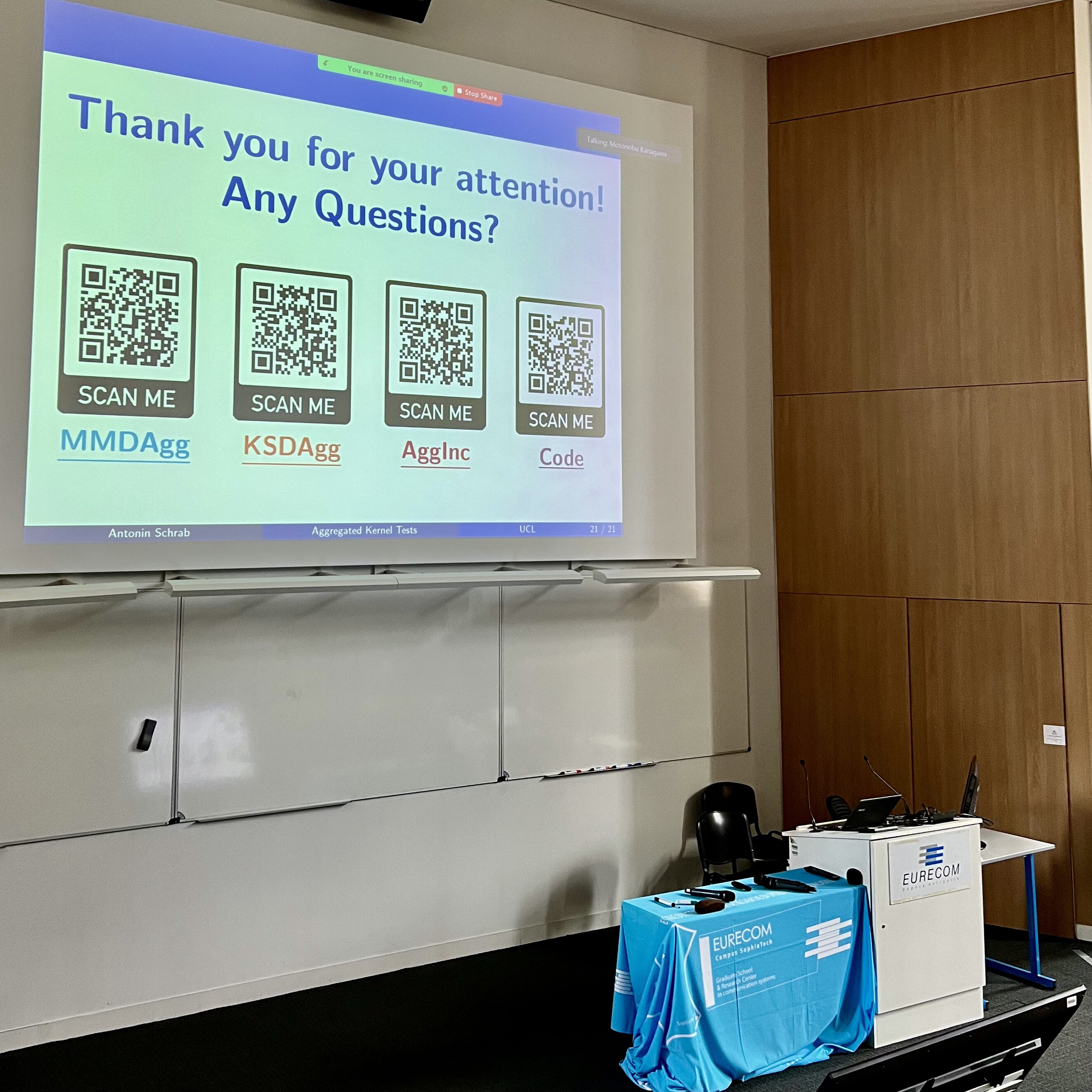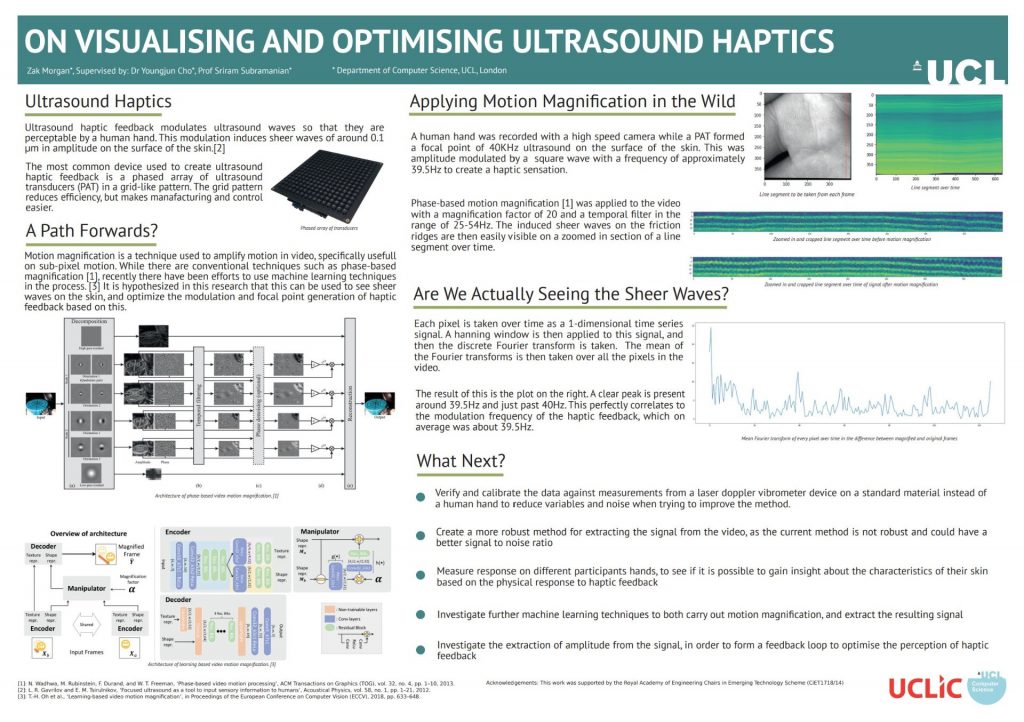Conferences and Workshops – GOFCP, MLF & EDS 2022 – Recap of events by Antonin Schrab
By sharon.betts, on 16 November 2022
In September 2022 I had the amazing opportunity to participate in workshops in Rennes and in Sophia Antipolis, and in a doctoral symposium in Alicante!
In poster sessions and talks, I have presented my work on Aggregated Kernel Tests which covers three of my papers. The first one is MMD Aggregated Two-Sample Test where the two-sample problem is considered, in which one has access to samples from two distributions and is interested in detecting whether those come from the same or from different distributions. The second is KSD Aggregated Goodness-of-fit Test in which we consider the goodness-of-fit problem where one is given some samples and is asked whether these come from a given model (with access to its density or score function). In the third one, Efficient Aggregated Kernel Tests using Incomplete U-statistics, we propose computationally efficient tests for the two-sample, goodness-of-fit, and independence problems; this last one consists in detecting dependence between the two components of paired samples. We tackle these three testing problems using kernel-based statistics, in such a setting the performance of these tests is known to heavily depend on the choice of kernels or kernel parameters (i.e. bandwidth parameter). We propose tests which aggregate over a collection of kernels and retain test power, we theoretically prove optimality of our tests under some regularity assumptions, and empirically show that our aggregated tests outperform other state-of-the-art kernel-based tests.

I am extremely grateful to Valentin Patilea, Motonobu Kanagawa and Aditya Gulati for the respective invitations, and to my CDT (UCL CDT in Foundational AI with funding from UKRI) which allowed me to participate in those workshops/symposium!
 Close
Close


